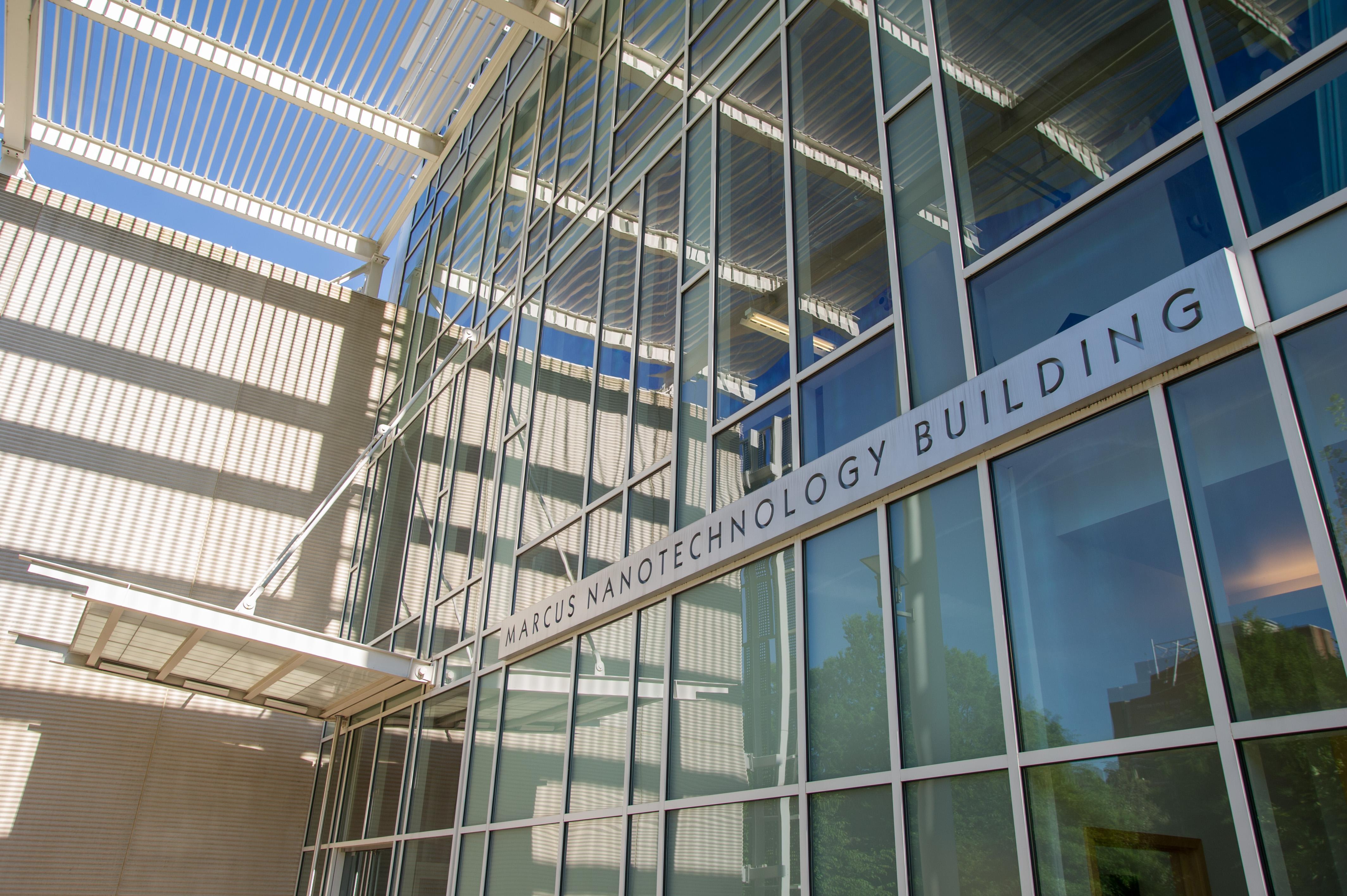New Interdisciplinary Research Institute to Launch This Summer
Nov 17, 2023 —

The Institute for Electronics and Nanotechnology (IEN) and the Institute for Materials (IMat) have announced they will combine to form a new Interdisciplinary Research Institute (IRI) set to begin operations on July 1, 2024.
The new IRI, which has yet to be named, will explore the vast scientific, technological, societal, and economic impacts of innovative materials and devices, as well as foster their incorporation into systems that improve the human condition in areas such as information and communication technologies, the built environment, and human well-being and performance.
“The new IRI will not only combine the strengths of IEN and IMat, but will also allow us to further expand faculty representation from across the Institute,” said Julia Kubanek, vice president of Interdisciplinary Research at Georgia Tech. “As we look at the future of research in these areas, expanding inclusivity of researchers from the liberal arts, design, business, and basic sciences will allow us to better meet the education, workforce development, and innovation needs of Georgia, the U.S., and the world.”
The new IRI will strengthen Georgia Tech’s role in national focus areas such as the National Nanotechnology Initiative, the Materials Genome Initiative, and the CHIPS and Science Act, as well as identify and shape future priorities.
Core competencies of the new IRI will include:
- Fundamental science to comprehend and control matter from the nanoscale to the mesoscale.
- The synthesis, processing, and characterization of materials to achieve desired properties.
- The design and fabrication of novel devices and components with enhanced capabilities.
- The integration of materials, devices, and components into larger systems.
- Computing, modeling, simulation, and big data to advance progress at all length scales.
- Integration into all stages of research, from conceptualization to impact assessment, of economic, business, and social factors to ensure sustainable and equitable benefits.
“IEN and IMat have worked closely together for years, and there is overlap in the research areas we cover,” said Eric Vogel, IMat’s executive director. “This is an opportunity for us to build on IEN and IMat’s individual successes and our strong record of collaboration to create something even more exceptional.”
The new IRI will strengthen the state-of-the-art core cleanroom and characterization facilities, providing researchers with the tools and resources necessary for cutting-edge interdisciplinary research. These facilities will continue to serve both Georgia Tech and, through its leadership within the NSF National Nanotechnology Coordinated Infrastructure, the nation. Recognizing the importance of nurturing talent, it will champion education and outreach programs to inspire the next generation and equip the workforce with the skills necessary to collaborate and communicate across multiple disciplines.
“This is an exciting time to look to the future,” said Michael Filler, interim executive director of IEN. “We highly value the dedication and hard work of our staff and research faculty, who have been crucial to the success of IEN and IMat and will be the backbone of this new organization. We look forward to creating something exceptional in the coming months.”
Laurie Haigh
laurie.haigh@research.gatech.edu




